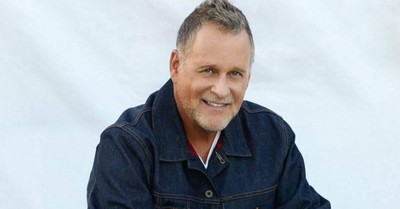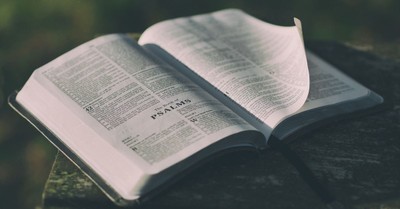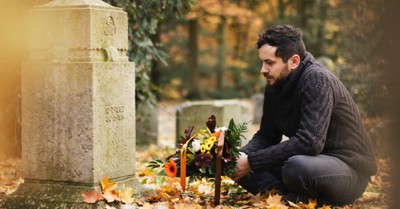For Clergy, Losing Faith Can be an Occupational Hazard
- Solange De Santis Religion News Service
- Updated Jun 22, 2010

NEW YORK (RNS) -- For some clergy, it is the problem that dare not speak its name.
Affected pastors say they cannot be themselves among their congregations or colleagues, sometimes even with their own families.
It's a huge and burdensome secret with the potential to destroy their careers, they say. They think they're not the only ones, but feel terribly lonely.
No, it's not some kind of sexual secret -- it's loss of faith.
Daniel C. Dennett, co-director of the Center for Cognitive Studies at Tufts University outside Boston, and Linda LaScola, a Washington-based clinical social worker, researcher and psychotherapist, are the authors of a recent study entitled "Preachers Who Are Not Believers" in the journal Evolutionary Psychology.
They used an admittedly tiny sample -- just five pastors, all Protestants -- of clergy who tell their congregations one thing, but secretly believe another.
"One of the things that was striking was how much like gays of the 1950s these pastors are," Dennett said. "In most cases, Linda was the first person these pastors had ever discussed this with. They were very lonely."
Dennett and LaScola state upfront that they themselves are not believers; indeed, Dennett is at the forefront of the "New Atheist" movement. His book, Breaking the Spell: Religion as a Natural Phenomenon, tried to explain the human search for the divine as a part of basic evolutionary survival.
Yet the two remain "sympathetic and fascinated" observers of faith, intrigued by the idea of active clergy who "don't believe what many of their parishioners think they believe and think they ought to believe."
The five respondents all have master's-level seminary education; three were from liberal denominations and two were from more conservative, evangelical traditions.
Defining the blurry line between "belief" and "non-belief" was a challenge, Dennett and LaScola wrote. Two ministers felt they had crossed a self-defined line, saying they no longer deserved to be called believers. Three said that while they may not believe in a supernatural god, yet they believe in something.
"Wes," a United Methodist minister, said he now sees God as "a kind of poetry written by human beings." He distinguished himself from an atheist by acknowledging that the word God "has value in some contexts."
One key point on the road to unbelief was scholarly studies of the historical origins of the Bible -- it "does not fit with what is taught in Sunday school," Dennett said.
"Darryl," a Presbyterian Church (USA) minister, said his seminary studies "blew open" Christian doctrine, leading him to realize there was "a variety of thought that went in every different kind of direction" in Christianity. "Adam," of the Church of Christ, learned that there is variation in biblical texts and remembered wondering whether church founders picked the right one.
All five clergy "set out to do good" when they entered the ministry, Dennett noted, which is why they struggle so deeply with their current situations. Although Darryl still described himself as a "Jesus follower," he also says he rejects "heaven and hell in the traditional sense," the virgin birth and the divinity of Jesus.
"They care, that's the problem," Dennett said. "There is a deep anguish and guilt and a sense of loyalty to the church as well as a desire to protect members of the congregation."
So why not simply abandon the pulpit? Several ministers, nowhere near retirement age, said they needed the job to put food on the table.
Others said such a step would be devastating to their families. "Jack," a Southern Baptist, said leaving the church would turn his wife's world "upside-down." Adam said he tells himself, "Just keep doing it ... just keep along with it ... tell yourself that this is for the greater good for the people I care about ... you're doing good in your community; you're respected."
Dennett and LaScola claim that neither denominational leaders nor congregations seem much interested in the depth and specifics of a clergyperson's faith -- and for good reason.
"When a congregation is searching for new pastor, they are much more interested in pastoral skills, a way with people, inspiring sermons.
They tend not to give the candidate the third degree about theology," Dennett said. And the last thing a bishop wants to hear is that "one of the front line preachers is teetering on the edge of default," the pair wrote.
The Rev. Patrick Malloy, an Episcopal priest and professor of liturgy at General Theological Seminary in New York, agreed that "search committees do not give applicants the 'third degree,"' yet said "that does not mean they are indifferent to the applicant's faith."
Malloy said he knows a number of Episcopal bishops, and "I can tell you that not one of them would take a 'don't ask, don't tell' approach" to a clergyperson's faith, even while they might respect "a breadth of opinion" and even "honest doubt."
Respondents and others who spoke to Dennett and LaScola said they believe they are the tip of an iceberg, so the pair plans a follow-up study, given the necessary funding and willing subjects.
"We would like to get more denominations, more stories," he said. He would like to talk to Roman Catholic priests, for example, where "there is a premium on doctrinal fidelity, but (also) a long tradition of intellectual sophistication among Catholic thinkers," Dennett said.
They also want to know whether it's harder for a man (or woman) of the cloth to lose faith in more conservative denominations than in more liberal ones.
"Is it true that in the more conservative denominations that... the gap between what they believe and what their parishioners believe is more painful? It's likely, but we don't know."
c. 2010 Religion News Service. Used with permission.
Publication date: June 22, 2010




















